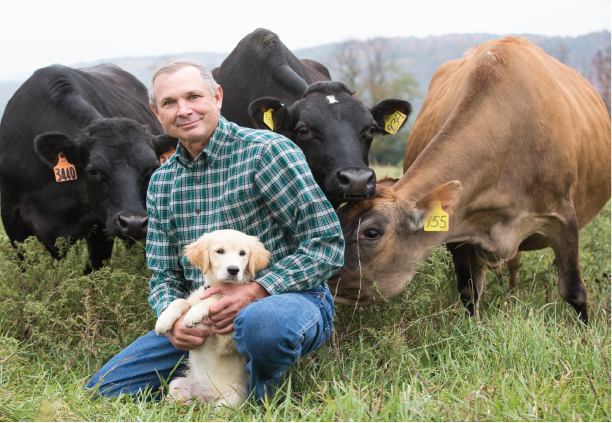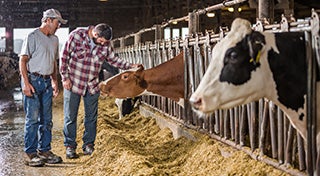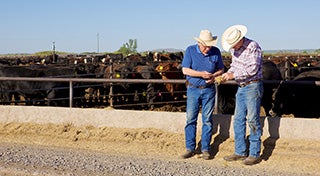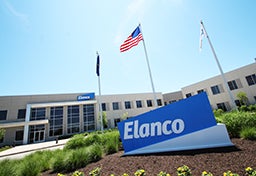More Tools in the Toolbox
Antibiotics are critical in supporting the health and well-being of farm animals and pets. But antibiotics are only one of the tools needed to maintain animal health and welfare. By understanding and partnering with veterinarians and farmers, we can target the use of antibiotics and reduce the risk of antibiotic resistance development.
It is all our responsibility to continue to find new and better ways to keep animals healthy, produce safe food and practice good antibiotic stewardship. Along with consistent, thorough application of best practices, the responsible use of antibiotics will help ensure the health of animals and improve food safety for the next generation and beyond.
Commitment to continued improvement
Seven years after issuing our initial plan, our commitment continues to be on increasing focus on best practices and disease prevention to reduce the need for medically important antibiotics (those used in both humans and animals). This vision is not just moving from treatment to prevention, but proactively developing awareness and technologies that promote health even before an animal’s life begins.
Elanco is committed to:
- Food chain stakeholder engagement: Help stakeholders across the food chain better understand and implement responsible antibiotic use guidelines
- Global antibiotic classification: Consider the role of WHO, OIE, National and Regional ranking recommendations
- Disease treatment: Support the administration of an antibiotic to an individual or a group of animals showing clinical signs of an infectious disease
- Disease control: Support the administration of antibiotics for disease metaphylaxis/control in animals identified by a veterinarian
- Disease prevention: Support the administration of antibiotics for disease prevention/prophylaxis where determined by a veterinarian that animals are likely to get sick
- Utilization of risk assessment: Following a risk assessment process, where regulations allow, support the use of non-medically important antimicrobials for performance indications
- Recording of antibiotic therapy: Antibiotic usage in farm animals should be recorded and kept by the veterinarian and/or farmer
- Concomitant use: Two medically important antibiotics of different classes should not be used concomitantly for the same disease indication (unless approved by the regulatory agency, or supported by scientific evidence and/or veterinarian experience)
- Aquaculture: Antibiotics in aquaculture is supported where environmental exposure of the antibiotics can be sufficiently controlled to avoid environment impact or risk of resistance development
With these commitments, Elanco continues to build on international guidelines laid out by the World Organization for Animal Health (OIE) and Codex Alimentarius. Elanco is confident these principles can meaningfully limit the risk from antibiotic resistance and protect sustainable animal production and pet health well into the future.
Participating in Global Efforts
Elanco is a founding and active member of the Clinical and Laboratory Standards Institute (CLSI) Veterinary Antimicrobial Susceptibility Subcommittee. The CLSI is responsible for establishing methods for testing antibiotic susceptibility as well as setting interpretive criteria which allow veterinarians to select the most appropriate antibiotics for treating sick animals. Elanco’s chief medical officer serves as a voting member of this committee.
Further, the veterinary industry conducts antibiotic resistance monitoring in food and pet animals across the EU under the umbrella of the Centre Européen d'Etudes pour la Santé Animale (CEESA). Elanco has been a member of the CEESA Antimicrobial Resistence (AMR) monitoring programs since its inception in 1997 and continues to take an active role in CEESA programs, which are recognized internationally. The CEESA group monitors for trends in resistance that may impact the efficacy of treatments or the safety of food and gives early indications if any upward trends in resistance appear to emerge.




